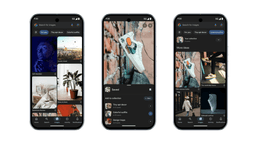Home / Business and Economy / Meta Projected to Earn $16 Billion from Scams and Banned Products by 2024
Meta Projected to Earn $16 Billion from Scams and Banned Products by 2024
7 Nov
Summary
- Meta projected to generate 10% of annual revenue from scams and banned products
- Billions of users exposed to fraudulent ads on Meta platforms
- Meta's automated systems flag suspicious ads but still allow them to run

According to documents obtained by Reuters, Meta, the parent company of Facebook, Instagram, and WhatsApp, projected in late 2024 that it would generate roughly 10% of its annual revenue, or about $16 billion, through ads promoting scams and banned products.
The leaked documents show that Meta's platforms were exposing billions of users to a wide range of fraudulent content, including e-commerce and investment schemes, illegal online gambling, and banned medical products. Meta's internal warning system was designed to identify suspicious marketers, but the company only banned advertisers when its automated systems assessed a 95% or higher likelihood of fraud. Advertisers deemed likely, but not certain, to be committing fraud were instead charged higher ad rates as a penalty.
The insights into Meta's internal practices highlight the company's unwillingness to institute regulations that might harm its profit goals. While Meta claims to be aggressively fighting fraud and scams, the documents suggest that the company is more focused on maximizing revenue than protecting its users from harmful content.




